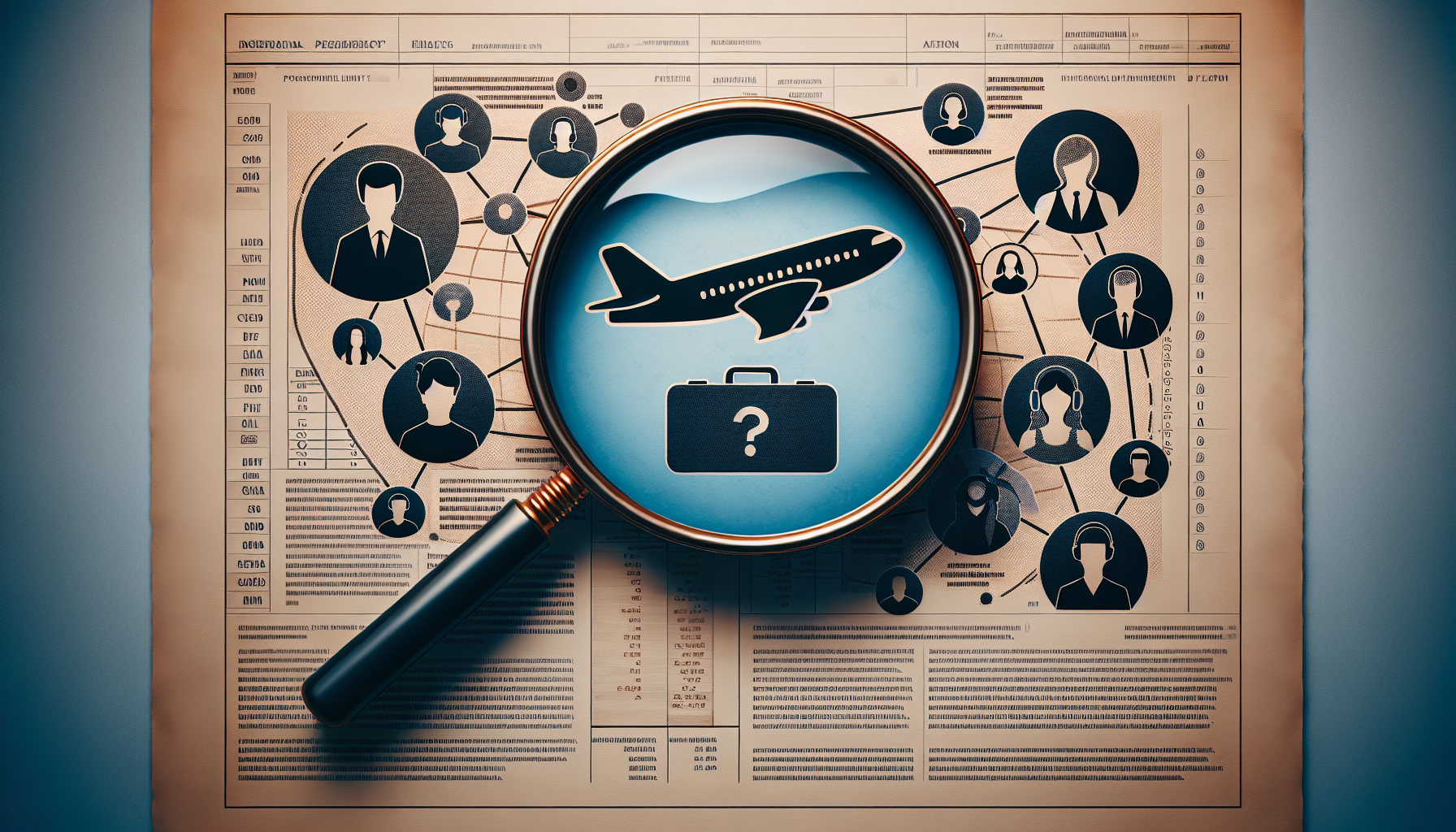K-Pop and Privacy: The Disturbing Saga of Leaked Flight Information
In a shocking revelation, a Hong Kong-based airline employee has been implicated in the illegal sale of flight details belonging to famed K-pop stars, including the globally adored BTS. This incident, which has sent ripples through both the aviation and entertainment industries, highlights significant vulnerabilities in data security and raises profound privacy concerns.
The Shocking Data Breach: What Happened?
Imagine you’re a K-Pop star, adored by millions yet stalked by an unknown few. Now, consider how unsettling it would be if someone with access to your travel plans started selling this confidential information. This was the unfortunate reality for BTS and several other K-pop icons, as a 30-year-old employee of a Hong Kong airline exploited her access to glean and sell such sensitive details for profit. With the information collected from 2023 to 2024, this breach saw over 1,000 data sets, including personal seats and flight itineraries of stars, being sold, netting around 10 million Korean won.
Beginning initially as a supposed favor for an acquaintance, this operation soon turned into a lucrative and illegal side business. The stark breach not only raises alarms about the specific airline's data protection measures but also prompts broader industry introspection on how personal data, especially of high-profile individuals, is handled.
How Big of a Problem is Celebrity Data Theft?
Celebrity data theft isn’t just limited to names and birthdays. Information like flight details can lead to severe safety threats. This incident is a reminder of an ongoing issue – the invasion of privacy that celebrities, particularly K-pop idols, often face. A vivid precedent was the 2020 incident involving a JYP Entertainment artist, Nayeon of TWICE, whose travel info was leaked, allowing a stalker to board her flight. Such episodes highlight how significant, and potentially dangerous, unauthorized access to celebrity information can be.
In K-pop, where fans can be meticulously attentive and connections are global, such breaches can instigate a frenzy. For stars, maintaining some semblance of privacy amid their bright spotlight is challenging enough without concerns that their travel could inadvertently welcome uninvited guests.
The Legal and Ethical Implications
The ethical ramifications of this breach extend far beyond just data security. It poses questions about corporate responsibility in protecting not just the data but the lives of individuals whose privacy is at risk. Korean entertainment company HYBE has been proactive, pursuing legal action against those trafficking in their artists' private information, underscoring a zero-tolerance stance that could set a significant precedent.
The legal landscape in handling such breaches is complex but crucial. Ensuring that perpetrators face consequences underscores the need for stringent cybersecurity measures. Moreover, companies must focus on establishing robust policies to severely limit access to sensitive customer data.
The Psychological Impact on K-Pop Stars
Beyond the technicalities and legalities lies the human element: the emotional and psychological impact on artists facing constant invasion of privacy. For K-pop idols, whose lives are under continuous scrutiny, the knowledge that their whereabouts can be accessed and shared without their consent is unsettling. It can often lead to heightened anxiety and a sense of vulnerability as their safety might be compromised based on a whistleblower’s whim.
Moreover, this breach highlights an aspect of fandom culture that borders on obsession. Fans who use such leaked information justify their voyeurism under the guise of adoration, not realizing the distress it causes to the very individuals they admire.
What Airlines and Companies Can Do Better
In response to potential threats and to assuage similar situations, airlines and companies associated with celebrity travel need to ramp up their security measures. Protecting the privacy of their passengers should be paramount. This includes:
- Implementing Advanced Cybersecurity Protocols: Ensuring robust encryption measures protect sensitive information.
- Strict Access Control: Limiting who can access flight details and continually auditing access logs.
- Employee Training: Regularly educating staff about the importance of data privacy and legal implications of breaches.
- Rapid Response Systems: Having a streamlined process to address breaches swiftly and mitigate damage.
These measures will not only protect celebrities but also enhance overall consumer confidence in the airline's commitment to data protection.
Reflecting on the Broader Implications
The breach serves as a cautionary tale with implications that stretch beyond the K-pop realm. It necessitates an urgent conversation about digital privacy in our modern age, where information, once leaked, can spread uncontrollably. The borderless nature of the internet means that leaks cannot be contained within geographical confines, making global cooperation and uniform cybersecurity standards a consideration for the future.
This incident should also provoke discussions among policymakers, tech companies, and consumer advocates to construct robust legal frameworks that protect individuals' privacy without stifling the free flow of information.
Conclusion: Why This Matters to Everyone
The unauthorized leak of private flight information is not just a K-pop issue; it is a symptom of a broader, more insidious problem in the digital age—privacy erosion. As K-pop continues its global conquest, the safety of its ambassadors becomes a matter of international concern. In our interconnected world, the responsibility falls not just on individual companies but society at large to create an environment where everyone, famous or not, can travel without fear.
In closing, while adoration for idols can border on the obsessive, it’s crucial to remember that they’re entitled to their privacy as much as anyone else. Let this incident be a reminder to cherish the art, respect the artist, and recognize boundaries in this age of digital exposure. What changes would you like to see in how we handle personal data security, and what role do you think fans should play in safeguarding their favorite celebrities?

